Ayn Rand University /

Ayn Rand Essay Contests
Atlas shrugged, top prize : $10,000, the fountainhead, top prize : $5,000, top prize : $2,000.

- Privacy Policy
- Terms & Conditions
- Ayn Rand Global
- Ayn Rand Institute eStore
- Ayn Rand University
STAY IN TOUCH
Copyright © 1985 – 2023 The Ayn Rand® Institute (ARI). Reproduction of content and images in whole or in part is prohibited. All rights reserved. ARI is a 501(c)(3) nonprofit organization. Contributions to ARI in the United States are tax-exempt to the extent provided by law. Objectivist Conferences (OCON) and the Ayn Rand Institute eStore are operated by ARI. Payments to OCON or the Ayn Rand Institute eStore do not qualify as tax-deductible contributions to the Ayn Rand Institute. Ayn Rand® is a registered trademark and is used by permission.
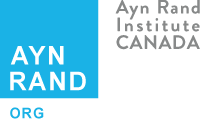
- Essay Contests
- Teacher Resources
Anthem Essay Contest
For all students in grades 8 through 12, ages 13+, next entry deadline: may 31, 2024, cash prizes, select one of the following three topics:.
Is the world of Anthem a depiction of a possible future? Do you think Ayn Rand intended it to be? Defend your answers by pointing both to specific events in the story and to examples from today or from history that support your claims.
In the society of Anthem , one of the worst sins is the “Transgression of Preference.” Using examples both from the novel and from real life, discuss the role of preferences in the formation of a person’s individual character. Why do you think the leaders of the society teach that it is immoral to prefer one person or thing over others? In your answer, consider what role preferences play in your own life.
In Chapter XII of Anthem , Prometheus says that the worship of the word “We” caused modern society to collapse into ruins. Explain what he means by this, referring to specific details from the novel. Are there widespread attitudes in your society today that represent “worship of the word ‘We’”? If so, what impact does this “worship” have on your society and on your own life? If not, what fundamental attitudes and ideas explain the difference between your society and the society in Anthem ?
Essays will be judged on whether the student is able to argue for and justify their view—not on whether the Institute agrees with the view the student expresses. Judges will look for writing that is clear, articulate and logically organized. Winning essays must demonstrate an outstanding grasp of the philosophic meaning of Anthem .
Essay submissions are evaluated in a fair and unbiased four-round judging process. Judges are individually selected by the Ayn Rand Institute based on a demonstrated knowledge and understanding of Ayn Rand’s works.
To ensure the anonymity of our participants, winners’ names are unknown to judges until after essays have been ranked and the contest results finalized.
- The Ayn Rand Institute’s (ARI’s) Anthem essay contest is open to all students worldwide, except where void or prohibited by law.
- Entrants must be at least 13 years of age and be enrolled as an 8th, 9th, 10th, 11th, or 12th student during the school year in which the contest is held. ARI reserves the right to make exceptions to this rule, on a case-by-case basis, for international students or for students with nonstandard school years. Verification of school enrollment will be required for all winning entrants.
- Students are permitted to submit no more than one entry to the contest, provided that they meet the eligibility requirements outlined above and have not previously won first-place in the contest.
- Essays must not include any personally identifiable information (name, email, school, et cetera). Your entry may be disqualified should such information be discovered in the essay.
- Essays must be written in English only, and be between 600 and 1,200 words in length. Spelling errors and/or written corrections (by anyone) found in the essay will count against the final grade and should be omitted before submission.
- Essays must be solely the work of the entrant. Plagiarism will result in automatic disqualification.
- Essays must not infringe on any third-party rights or intellectual property of any person, company or organization. By submitting an essay to this contest, the entrant agrees to indemnify ARI for any claim, demand, judgment or other allegation arising from possible violation of someone’s trademark, copyright or other legally protected interest in any way in the entrant’s essay.
- Essays must be submitted electronically through ARI’s online application portal. If you are unable to submit your essay electronically, please contact us at [email protected].
- Essays must be submitted online by 11:59 p.m. Pacific Time of the entry deadline. ARI reserves the right to provide contest deadline extensions on a case-by-case basis when deemed appropriate.
- All entries become the property of ARI and will not be returned.
- All entrants consent to participate in a video interview should ARI deem it necessary for the purposes of verifying eligibility, confirming entry information, or conducting any other relevant assessments related to the contest. Entrants understand that participation in such interviews is voluntary but may be required to determine eligibility status, and agree to make reasonable efforts to accommodate such requests within a timeframe as specified by ARI.
- All entrants who advance to the final round of grading will be expected to participate in a video interview with ARI. Declining such an interview may result in disqualification from the contest.
- All entrants will be notified of the final results via email within three months of the contest deadline.
- Winners are responsible for providing their mailing addresses and other necessary information under the law in order to receive any prizes. Prizes must be claimed within six months of the results being announced.
- Winners agree to allow ARI to post their names and school information on any of its affiliated websites.
- Winners agree to record a short video testimonial about their experience reading Anthem, and consent to ARI’s sharing of said video with donors who make the essay contest possible.
- Winners agree to participate in interviews and allow ARI to use quotes and take photographs or videotapes of them.
- Winners also grant to ARI the right to edit, use and reuse said products for non-profit purposes including use in print, on the internet and all other forms of media.
- Winners release ARI and its agents and employees from all claims, demands, and liabilities whatsoever regarding the above.
- Winners will be solely responsible for any federal, state or local taxes.
- Employees of ARI, its board of directors and their immediate family members are not eligible to participate.
How to Enter
Submit your essay
You will receive an e-mail acknowledging receipt of your entry within 24 hours. If it has been at least 24 hours , and you still have not received e-mail notification, please first check your junk or spam folders and then e-mail us at [email protected] . Please do not re-submit your essay.
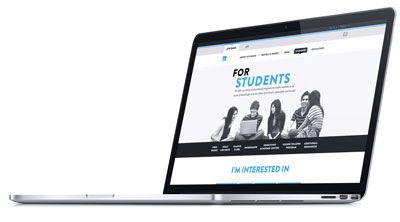
New! A website for students who want to learn more about Ayn Rand’s novels.
by Ayn Rand
Anthem essay questions.
How does the manipulation of language enforce collectivist doctrine in the society of Anthem ?
One of the main motifs in the novel is the omission of the word "I" from human knowledge, as it enforces the association of the self with the group and the state in the unconscious. Over the course of the novella, Equality 7-2521 begins to recognize the need for this Unspeakable Word, but his society has not equipped him with the mental machinery necessary to work out the exact nature of what he is missing. Although he breaks away from the collective at a relatively early point, he does not understand how to offer an alternative philosophy until this block in his thinking is removed, and his search for the Unspeakable Word is a central struggle in Anthem .
How does Rand connect Equality 7-2521's mental development to the ideals of the Enlightenment?
As Equality 7-2521 rediscovers electricity, he replicates the experiments of Galvani, Volta, and Franklin, all of whom lived and conducted their research during the eighteenth-century Enlightenment. Franklin was particularly involved with the founding of the United States of America and borrowed heavily from the ideas of contemporaries such as John Locke; Equality 7-2521 comes to appreciate the value of these ideals as he increasingly emphasizes an adaptation the Declaration of Independence's emphasis on "life, liberty, and the pursuit of happiness," which in turn stems from Locke's protection of "life, health, liberty, or possessions." Finally, as Prometheus, the protagonist obliquely cites Enlightenment thinkers as he discusses the history of man, who "declared to all his brothers that a man has rights which neither god nor king nor other men can take away from him."
How do Equality 7-2521's experiments with electricity and the invention of the glass box influence his understanding of self?
Prior to discovering the tunnel and commencing his scientific experiments, Equality 7-2521 believes that the Council of Scholars is omniscient in its understanding of nature, and that he is at fault for exceeding others in a society that worships forced equality. However, after he discovers electricity, he realizes that the Council of Scholars does not know everything and that he as an individual can achieve more than any group. He also discovers that he can find happiness in experimentation because, for once, he is free to do as he wishes, and he thereby learns an appreciation for the strength of his own body. After inventing the glass box, he at first believes that he values the box because he sees its potential for humanity, but eventually, he learns that he actually loves the box because it is his creation and thus an extension of his self.
Explain the connection between mind, body, and self in Anthem .
At the beginning of the novella, Equality 7-2521 has a very incomplete understanding of self, so he ironically views the superiority of his mind and body as a crutch that prevents him from assimilating into his society and living morally. However, when he invents the glass box, he finally appreciates the strength of his own body and mind, and when he meets the Golden One, he learns that the connection between mind and body is particularly strong. His and the Golden One's fearless, strong bodies represent their similarly worthy minds, and, on the night of his invention of the box, Equality 7-2521 finally realizes that to take pride in one's body and accomplishments is akin to taking pride in oneself. By the end of the story, he has learned that mind, body, and self are inextricably interwoven -- and that the result is an ideal whole.
In what ways does Rand reverse our usual expectations about morality in Anthem ?
At the heart of Anthem is a polemical argument that reverses our assumptions about selfishness and altruism. Collectivism operates on the expectation that if every man unselfishly works for others, all will be happier, but in Rand's extreme collectivist society, this philosophy leads inevitably to the repression of the able individual, while an egoist man will by contrast benefit society by working solely for himself. Rand also represents this apparently counter-intuitive argument through the visual association of snow white -- traditionally the hue of innocence and purity -- with the evil indoctrination of the Home of the Students, while placing Equality 7-2521's positive scientific experiments in the dark tunnel. Correspondingly, Equality 7-2521 develops the philosophy of egoism and comes to believe the opposite of what the Home of the Students taught him.
What is the significance of the Uncharted Forest for Equality 7-2521?
The Uncharted Forest serves two major functions for Equality 7-2521: it is a foreshadowing of his future, and it is an affirmation of his doubts regarding collectivism. At first, Equality 7-2521's thoughts are drawn to the Uncharted Forest because he senses that it separates the flawed collectivist society of the City from possible remnants of the Unmentionable Times with which he is obsessed. Later, his body recognizes unconsciously that the solution to his break with the World Council of Scholars lies in the forest, and he runs instinctively into it. Once he enters the Uncharted Forest, he begins a mental and physical journey away from the City, triggered by the sense of happiness and independence that he now associates with the wilderness.
Explain the relationship between the Golden One and Equality 7-2521.
The Golden One is not simply Equality 7-2521's love interest; she also serves as his first disciple, who follows him into his forest and trails the path he blazes into a rejection of collectivism. Accordingly, despite the importance of the romantic subplot in Equality 7-2521's mental development, the Golden One is a secondary character who does not exhibit the full three-dimensionality of Equality 7-2521. For him, she is a symbol, and he loves her rationally and because she instinctively shares his values and character. His love for her is also an exploration of his love for himself, which he comes to celebrate because it brings him joy.
What is the significance of the house of the Unmentionable Times for Equality 7-2521?
Sensing that his literal and metaphorical journey away from the City is coming to a close, Equality 7-2521 chooses to settle with the Golden One in the new house to create a new, individualist life where he can discover the Unspeakable Word and resolve his inner dialogue on collectivism. The house is an embodiment of the values of the Unmentionable Times, and Equality 7-2521 specifically mentions that it belonged to only two people, emphasizing its rejection of collectivist values. The house also contains a mirror in which the Golden One stares fascinated for hours, allowing her to gain Equality 7-2521's understanding of the importance of the body. Moreover, it features many electrical appliances and books which give Equality 7-2521 a fuller knowledge of what humanity has forgotten in its worship of "We."
Compare the scene of the World Council of Scholars with the penultimate chapter's proclamation of "I" in terms of their respective philosophical arguments.
The words of the World Council of Scholars encapsulate the basis and problems of collectivism, just as Equality 7-2521's words about his rediscovery of "I" constitute a manifesto in favor of egoism. Whereas Collective 0-0009 tells Equality 7-2521 that "what is not thought by all men cannot be true," Equality 7-2521 chooses to search for the Objectivist truth. He says in Chapter Eleven, "I am not a sacrifice on their altars," directly refuting the council members' claim that he must submit to the will of others and serve society as the authorities see fit. While the meeting with the Council of Scholars marks the point of no return, after which Equality 7-2521 inevitably leaves and rediscovers "I," his manifesto celebrates his discovery and allows him to justify his refusal of his society.
What are some potential errors of Rand's arguments in Anthem ?
Because Rand chooses to argue against the most extreme possible manifestation of collectivism with the most extreme form of individualism, she does not adequately refute the supposition that a moderate form of collectivism or even a slightly altruistic society based mainly on individualism may have merit. Rand's declaration that man will most efficiently help society by focusing solely on his own works is an exaggerated version of capitalism, but in historical practice, a purely selfish approach has often led to a gap between the rich and the poor that has had more to do with lack of opportunity for the poor than with their weakness. Furthermore, Rand proposes a model based on a perfect human rationality that may only exist in theory, and one might consequently contend that Rand has made some false assumptions about human nature that rival her description of the errors of Marxism.

Anthem Questions and Answers
The Question and Answer section for Anthem is a great resource to ask questions, find answers, and discuss the novel.
What is a typical day like in Equality’s life?
A typical day in Equality's life consists of waking up in a communal sleeping hall, eating breakfast with his fellow street sweepers, performing his assigned job during the day, and attending government-mandated classes and leisure activities in...
You write "in" . Are you referring to a specific chapter or the book as a whole?
How does equality 7-2521 demonstrate his rejection of his society in
In what? Are you referring to a specific section of the novel?
Study Guide for Anthem
Anthem study guide contains a biography of Ayn Rand, literature essays, quiz questions, major themes, characters, and a full summary and analysis.
- About Anthem
- Anthem Summary
- Character List
Essays for Anthem
Anthem literature essays are academic essays for citation. These papers were written primarily by students and provide critical analysis of Anthem by Ayn Rand.
- The Merit of Ipseity
- Ayn Rand in Context
- Family Sway
- The Evolution of Equality: A Self-Liberated Character
- A Curious Aspect of Progress: Inquiry vs. Oppression in 'Anthem'
Lesson Plan for Anthem
- About the Author
- Study Objectives
- Common Core Standards
- Introduction to Anthem
- Relationship to Other Books
- Bringing in Technology
- Notes to the Teacher
- Related Links
- Anthem Bibliography
Wikipedia Entries for Anthem
- Introduction

Ayn Rand Essay Contests
Ages: High School, Undergraduate, Graduate
Type: Submission
Scope: none
Participate
Have you ever read one of Ayn Rand’s thought-provoking novels? Now’s the time! Enter an Ayn Rand Institute essay contest and you’ll have a chance to win thousands of dollars in prize money. ARI has held student essay contests on Ayn Rand’s fiction since 1986, awarding over $2.2 million in prize money to contest winners! This year we will award more than $40,000 to hundreds of students worldwide.
Students can select to write an essay relating to topics from two of Ayn Rand's novels: Anthem or The Fountainhead. For each novel, there are multiple topics that can be addressed in the essay. Students can select any of these topics. See the competition website for details on the topics. Essays must be 600-1200 words in length and written in English only. Essays must be solely the work of the entrant. Plagiarism will result in disqualification. Essays must be written in English only, and must be no fewer than 600 and no more than 1,200 words in length, double-spaced. Spelling errors and/or written corrections (by anyone) found on the essay will count against the final grade and should be omitted before submission.
Website: https://www.aynrand.org/students/essay-contests
Managing Organization: Ayn Rand Institute
Contact: [email protected]
Eligibility: Open to all 8th, 9th, 10th, 11th, and 12th grade students worldwide. Entrant must be 13 years of age or older.
Signup Newsletter
Sign me up for the newsletter!

The Institute of Competition Sciences (ICS) was founded in 2012 to help transform learning into an exciting challenge for all students. We exist to support students in realizing the full potential of their future.
Quick Links
- Competitions
- Privacy Policy
- Terms and Conditions

Connect with us on social media

Copyright © 2024 Institute of Competition Sciences. All rights reserved.
Share Atlas Shrugged with the next generation
Every day Ayn Rand’s books are freely shared with students and teachers around the world, thanks to the generous support of our donors. You can help deliver Ayn Rand’s books to eager readers today.

- Newsletter Sign Up

Impact Today
- Culture And Society
- Foreign Policy
- Government And Business
- Science And Industrialization

Read Now: Prize-Winning Essays on Ayn Rand Novels
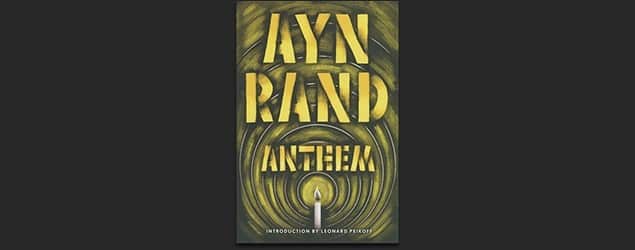
Celebrating 25 Years of the Anthem Essay Contest
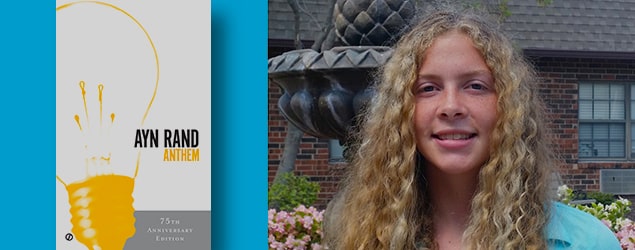
Introducing the 2015 Anthem Essay Contest Winner
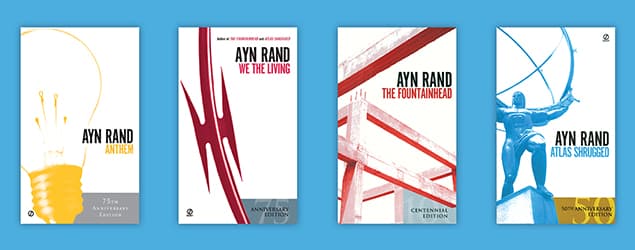
Teacher Interest in Ayn Rand Novels Increases
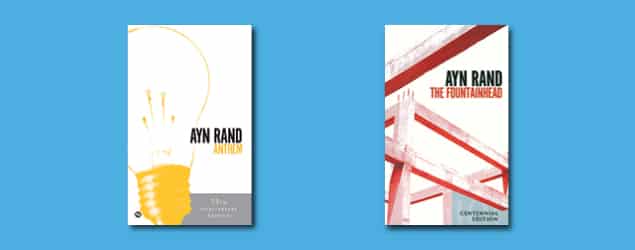
ARI to Award 2015 Essay Contest Winners More Than $67,000 in Prize Money
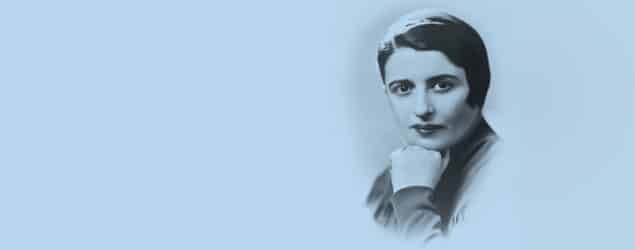
Ayn Rand’s Anthem Nominated for Retrospective Hugo Award

Engaging with Leading Free Market Thinkers
Explore Topics
- Campaign Finance
- Barack Obama
- The Yaron Brook Show
- Financial Crisis
- Regulations
- Welfare State
- Patents And Copyrights
- Setting Goals For Life And Happiness
- Socialized Medicine
- Property Rights
- We The Living
- Green Energy
- Capitalism And Free Markets
- Income Inequality
- Church State Separation
- Ayn Rands Life And Works
- Fast Food Industry
- Egoist Foreign Policy
- Rule Of Law
- United Nations
- Campaign Finance Law
- Freedom Of Religion
- Collectivism
- Paul Krugman
- Business Management
- Agriculture
- Sense Of Life
- Labor And Employment Law
- Health Care Policy
- Ayn Rand Biography
- Creationism
- Rise And Fall Podcast
- Atlas Shrugged
- Individual Rights
- Culture And Politics
- Objectivism
- Palestinians
- Reason Vs Faith
- Biotechnology And GM Foods
- Social Security
- Department Of Justice
- Capitalism And Economics
- Labor Unions
- Objective Law
- Scientific And Technological Progress
- Ayn Rand Novels And Ideas
- Law And Courts
- Ayn Rand Institute
- Egalitarianism
- National Self Defense
- Mixed Economy
- Auto Industry
- Egoism And Selfishness
- Morality Of Capitalism
- Moral Foundations Of Freedom
- Banking And Finance
- Middle East
- Environmentalism
- Health Insurance
- Oil Industry
- Individualism
- Constitutional Law
- Genetic Engineering
- Self Esteem
- About Ayn Rand
- Laissez Faire Capitalism
- Climate Change
- Epistemology
- Conservatives
- Islamic Totalitarianism
- Freedom Of Speech
- Pursuit Of Happiness
- The Fountainhead
- The Debt Dialogues
- North Korea
- Intellectual Property
- Rational Self Interest
- Afghanistan
- Donald Trump
- Businessmen
- Minimum Wage
- Arab Israeli Conflict
- Policy Digest
- Appeasement
- Pharmaceutical Industry
- Islamist Movement
- Financial Markets
- Economic Vs Political Power
- Morality Of Business
- Health Care
- Fossil Fuels
- Cultural Trends And Movements
- Founding Fathers
- Romantic Love
- Business Ethics
- Supreme Court
- Art And Esthetics
- Aaron Smith
- Amanda Maxham
- Carl Svanberg
- Don Watkins
- Doug Altner
- Elan Journo
- Keith Lockitch
- Kevin Douglas
- Onkar Ghate
- Rituparna Basu
- Robert Mayhew
- Steve Simpson
- The Editors
- Yaron Brook
Further Reading
The moral meaning of capitalism, the objectivist ethics.

- Privacy Policy
- Terms & Conditions
- Ayn Rand Global
- Ayn Rand Institute eStore
- Ayn Rand University
Updates From ARI
Copyright © 1985 – 2024 The Ayn Rand Institute (ARI). Reproduction of content and images in whole or in part is prohibited. All rights reserved. ARI is a 501(c)(3) nonprofit organization. Contributions to ARI in the United States are tax-exempt to the extent provided by law. Objectivist Conferences (OCON), Ayn Rand Conference (ARC), Ayn Rand University (ARU) and the Ayn Rand Institute eStore are operated by ARI. Payments to OCON, ARC, ARU or the Ayn Rand Institute eStore do not qualify as tax-deductible contributions to the Ayn Rand Institute. AYN RAND, AYN RAND INSTITUTE, ARI, AYN RAND UNIVERSITY and the AYN RAND device are trademarks of the Ayn Rand Institute. All rights reserved.
- Undergraduate
- Short Courses
- Online Courses
- Masters/Postgraduate
- Postdoctoral
- Study in Africa
- Study in Asia
- Study in Australia
- Study in Europe
- Study in USA
- Fellowships
- Internships
- Volunteering
- OD Live Series
- Young Person of the Month
- Success Stories
- General Tips
- ODIC 2023 Application
- ODIC Judges
- ODIC 2023 Winners
- ODIC 2022 Winners
- ODIC 2021 Winners
- ODIC 2019 Winners
- ODIC 2018 Winners
- ODIC 2017 Winners
- ODIC 2016 Winners
- Australia and Oceania

Ayn Rand Institute Atlas Shrugged Essay Contest 2024 ($25,000 prize)
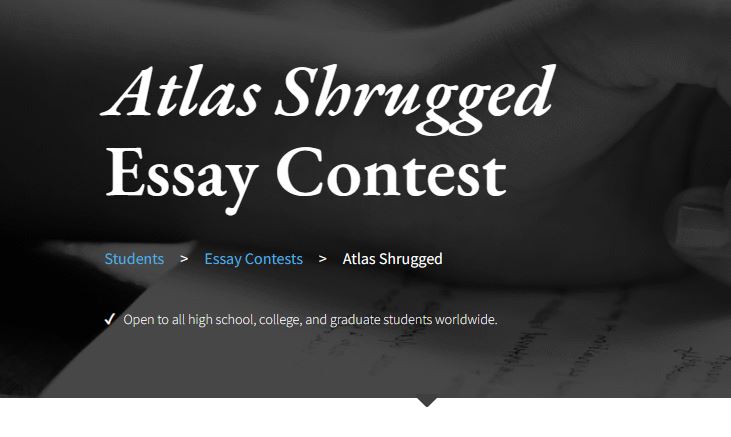
Deadline: December 27, 2024
Applications are open for the Ayn Rand Institute Atlas Shrugged Essay Contest 2024 . Every three months there is a new seasonal entry round, with its own unique essay prompt. Each entry round features a unique topic designed to provoke a deeper understanding of the book’s central themes and characters. You may compete in any or all of the entry rounds.
Winter Prompt: The story of the Twentieth Century Motor Company is about how a private business and its employees voluntarily decide to adopt a supposedly moral plan. What are the ideas, especially the moral ideas, that lead to the company’s destruction? How can we see these ideas at work in business, culture, or politics today? Explain how you think their consequences will be similar to, and/or different from those suffered by the Twentieth Century Motor Company.
- Annual Grand Prize: $25,000
- First Prize: $3,000
- Second Prize: $2,000
- Third Prize: $1,000
Eligibility
- Open to all high school, college, and graduate students worldwide.
- Essays must be written in English only and be between 800 and 1,600 words in length.
Judging Criteria
- Organization
- Understanding
- Their graders look for writing that is clear, articulate, and logically organized. Essays should stay on topic, address all parts of the selected prompt, and interrelate the ideas and events in the novel.
- Winning essays must demonstrate an outstanding grasp of the philosophic meaning of Atlas Shrugged.
Application
Click here to apply
For more information, visit Atlas Shrugged Essay Contest .

Jude Ogar is an educator and youth development practitioner with years of experience working in the education and youth development space. He is passionate about the development of youth in Africa.
Related Posts
World bank youth summit pitch competition 2025 (funded to washington, d.c.), google research scholar program 2025 (up to $60,000), tadamon accelerator for food security 2025 (up to $40,000).
Type above and press Enter to search. Press Esc to cancel.
Ad Blocker Enabled!

IMAGES
COMMENTS
The Ayn Rand Institute has hosted annual essay contests on Ayn Rand’s fiction since 1985, awarding over $2.2 million in total prizes to students worldwide. Enter one of our contests today for a chance to win up to $10,000!
Mar 11, 2024 · I am extremely appreciative of the opportunity to explore Ayn Rand's philosophy provided by this essay contest.“ Sydney High school student at Patrick Henry High School “I read Anthem as a high school AP Literature student, and I remember being so struck by Rand’s succinct yet powerful style of storytelling.
Mar 11, 2024 · Essays should stay on topic, address all parts of the selected prompt, and interrelate the ideas and events in the novel. Winning essays must demonstrate an outstanding grasp of the philosophic meaning of Atlas Shrugged .
Nov 17, 2017 · ARI has held worldwide essay contests for students on Ayn Rand’s fiction for thirty years. This year we will award over 750 prizes totaling more than $130,000. Last year’s contestants read and responded to essay prompts on Ayn Rand’s Anthem, The Fountainhead or Atlas Shrugged. You can read all three winning essays on our essay […]
Nov 6, 2023 · Ayn Rand Essay Contests. Atlas Shrugged Top Prize: $10,000 Open to all 12th grade, college, and graduate students worldwide. Deadline: November 6, 2023. Enter
The Ayn Rand Institute’s (ARI’s) Anthem essay contest is open to all students worldwide, except where void or prohibited by law. Entrants must be at least 13 years of age and be enrolled as an 8th, 9th, 10th, 11th, or 12th student during the school year in which the contest is held.
Essays for Anthem. Anthem literature essays are academic essays for citation. These papers were written primarily by students and provide critical analysis of Anthem by Ayn Rand. The Merit of Ipseity; Ayn Rand in Context; Family Sway; The Evolution of Equality: A Self-Liberated Character; A Curious Aspect of Progress: Inquiry vs. Oppression in ...
Students can select to write an essay relating to topics from two of Ayn Rand's novels: Anthem or The Fountainhead. For each novel, there are multiple topics that can be addressed in the essay. Students can select any of these topics. See the competition website for details on the topics.
Nov 17, 2017 · ARI has held worldwide essay contests for students on Ayn Rand’s fiction for thirty years. This year we will award over 750 prizes totaling more than $130,000. Last year’s contestants read and responded to essay prompts on Ayn Rand’s Anthem, The Fountainhead or Atlas Shrugged. You can read all three winning essays on our essay contest page.
Oct 21, 2024 · Applications are open for the Ayn Rand Institute Atlas Shrugged Essay Contest 2024. Every three months there is a new seasonal entry round, with its own unique essay prompt. Each entry round features a unique topic designed to provoke a deeper understanding of the book’s central themes and characters.